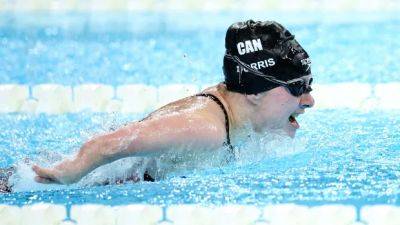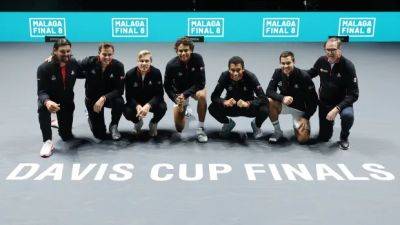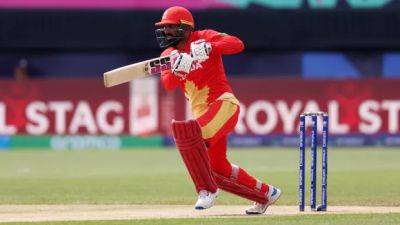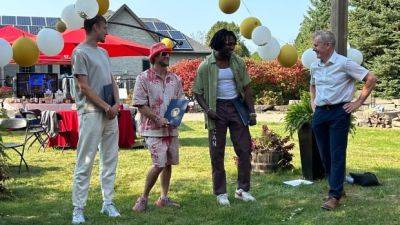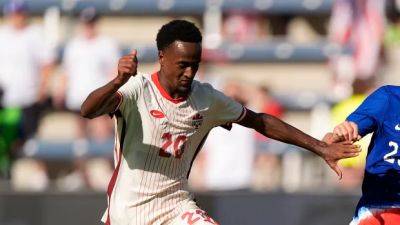Canada's Priscilla Gagné happy more blind judokas getting chance at Paralympics
Canadian judoka Priscilla Gagné isn't enjoying the easy ride she once expected at the Paris Paralympics.
But as the three-time Paralympian enters her final Games, she welcomes the competition — because new rules mean more blind athletes are getting a chance on the mat.
Born with the genetic eye disorder retinitis pigmentosa, Gagné is categorically blind and will compete in the women's J1 57-kilogram event Thursday at 4:36 a.m. ET at Champ de Mars Arena. Live coverage is available on CBCSports.ca, CBC Gem and the CBC Paralympics app.
In previous Paralympics, judokas with varying degrees of impaired vision were lumped together. The Paris Games will have two distinct categories to help level the playing field: J1 for fully blind athletes and J2 for those with partial vision.
"I decided to continue to Paris because of the vision classification changes, anticipating it would be a walk-through," Gagné said. "And it's not a cakewalk, because of all these amazing athletes coming out."
Canadian coach Andrzej Sadej, a key figure in the development of high-level judo in the country, said Gagné was the only fully blind athlete competing for gold in Tokyo.
When the new classification was implemented after the Tokyo Games, Sadej said the Canadian Paralympic Committee and Own The Podium were keen to invest in Gagné's training.
Instead of dominating the field, Gagné enters the Paris Games ranked fourth. She said the door has opened to a whole new class of talented blind judokas from countries around the world — athletes who didn't get the opportunity to compete under the previous classification.
"It's not only good for [the blind athletes], it's good for the entire population in their country, the disabled population in their country,"



